
Heated gutters are a great way to minimize gutter damage and maintenance. Use this guide to estimate your heated gutter cost before getting started.
Use these tips for installing gutter guards seamlessly at your home


Installing gutter guards is the least expensive and fastest way to protect your gutters from clogs that can lead to water damage. While this project isn't extremely difficult, protecting your gutters goes beyond just slapping on some guards. Factors like proper measurements, quality products, and precision during application are important.
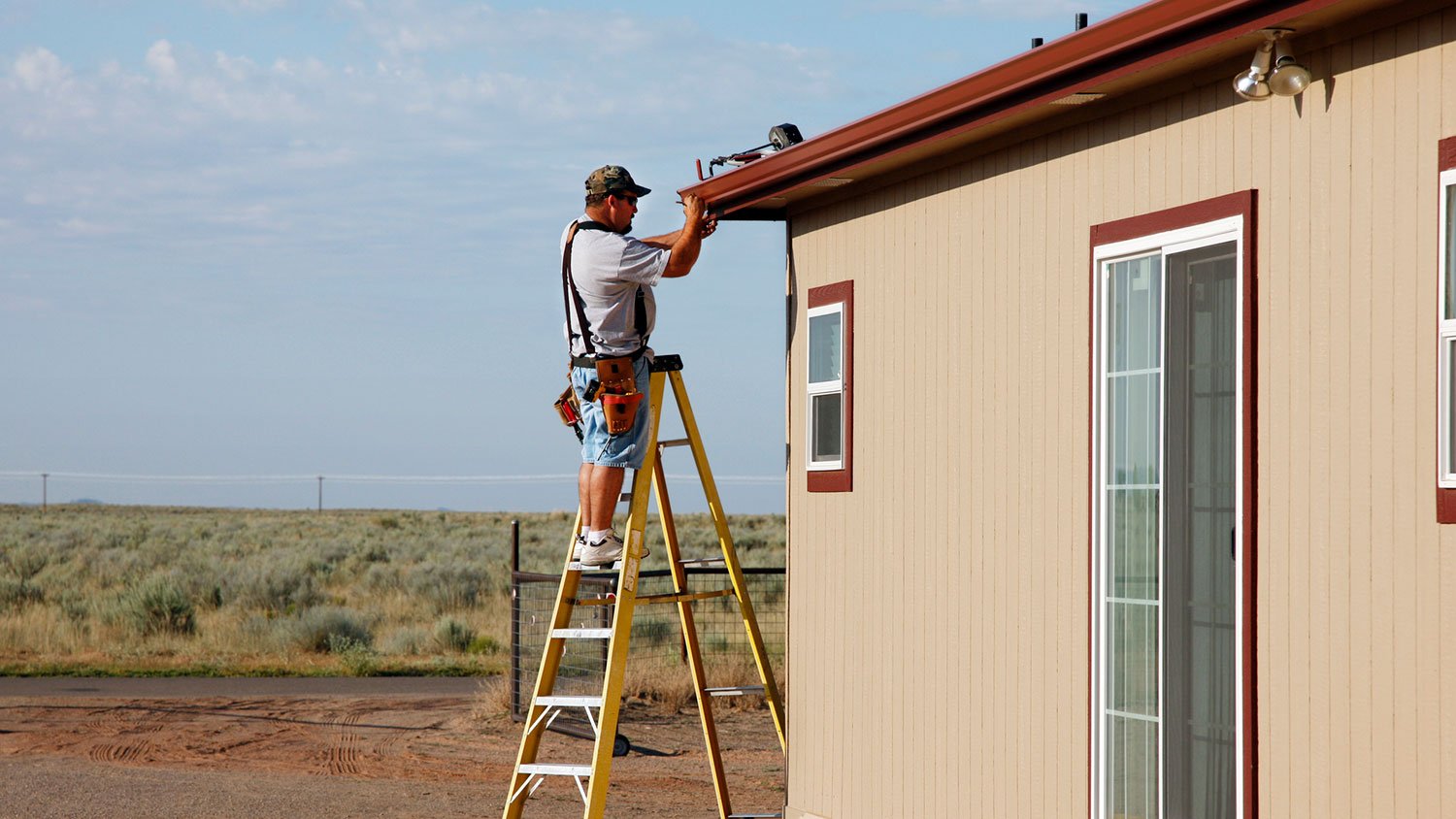
First, make sure you actually want to do this project on your own. If you're not comfortable climbing up to roof level, consider calling in gutter pros to handle the job safely and easily in just a few hours. If you do decide to take it on, be sure you follow safety precautions like working with a buddy, taking your time, and working in good weather. In addition, you should attach a bucket to an S-hook to hang off your ladder so you can reach your tool easily, and also use a stand-alone ladder instead of one that would rest on your gutters.
Next, you’ll want to make sure you purchase the right type of gutter guards for your house. The most popular types are the following:
Mesh and micro-mesh
Screen
Reverse-Curve
Foam
Brush
Many homeowners like mesh because it helps to keep leaves, tree branches, and other debris out of gutters. Choose hole aperture based on the size of debris you anticipate in your yard—this will likely be based on the type of trees and other foliage in your region. If you're unsure about the style that's the best fit for your home, consider bringing in a gutter guard pro in your area to do an analysis.
Generally, guards that snap in place are ideal for a DIY job. Some gutter guards out there actually go under your shingles. However, it's not recommended that homeowners try to install this type of guard on their own because it's very easy to damage shingles during installation if you're not experienced. You could inadvertently cause damage to your roof that will lead to bigger problems if you're lifting shingles without experience.
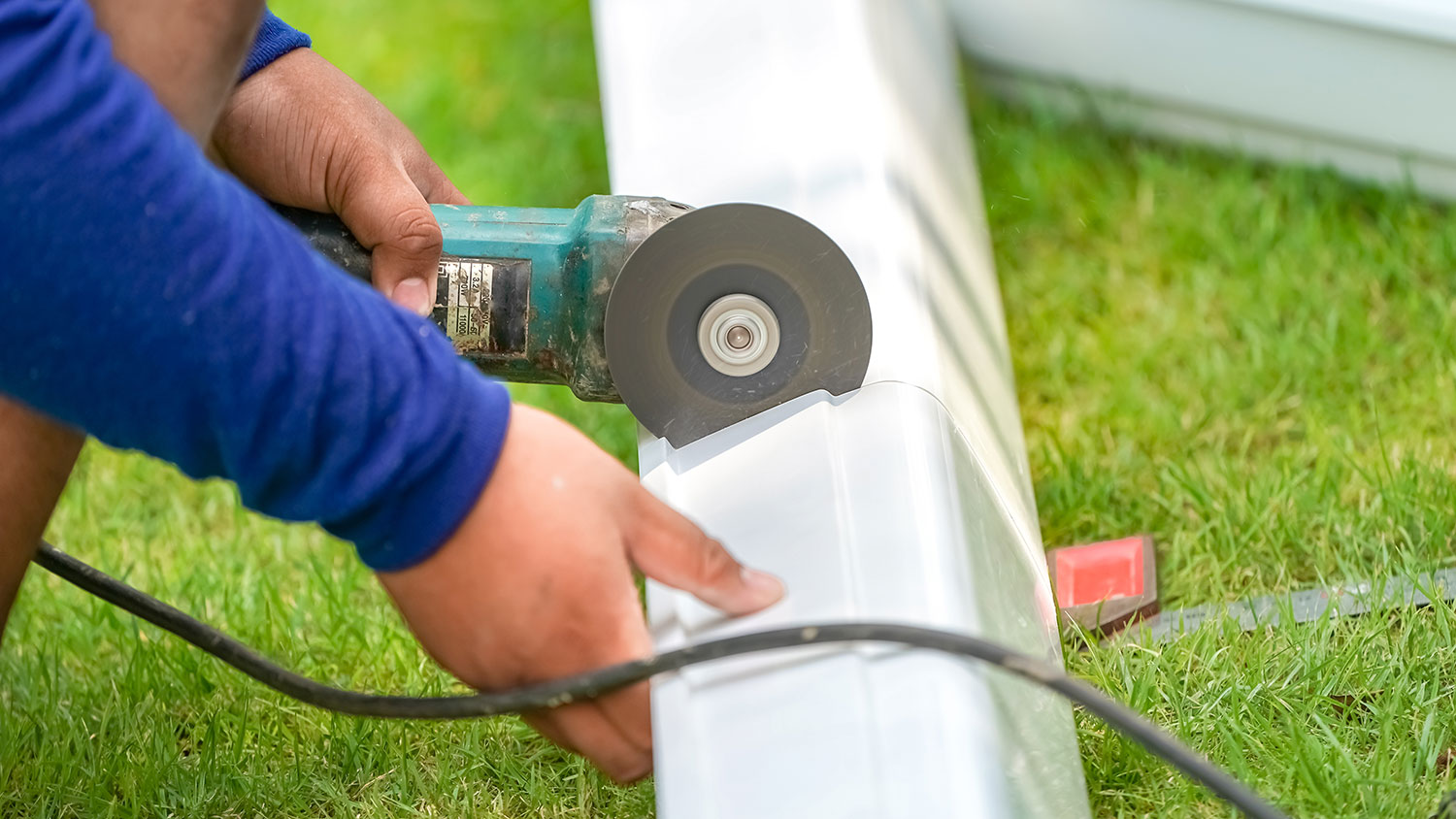
Gutter guards come in pieces. It's necessary to measure the gutters around your home to determine how many inches or square feet are needed. We recommended measuring the gutters twice to ensure you have the numbers correct; if you get the measurements wrong, you’ll need to cut them down, which can complicate this project. This is also something that a gutter professional can help with. Guards may need to be trimmed to size in some cases.
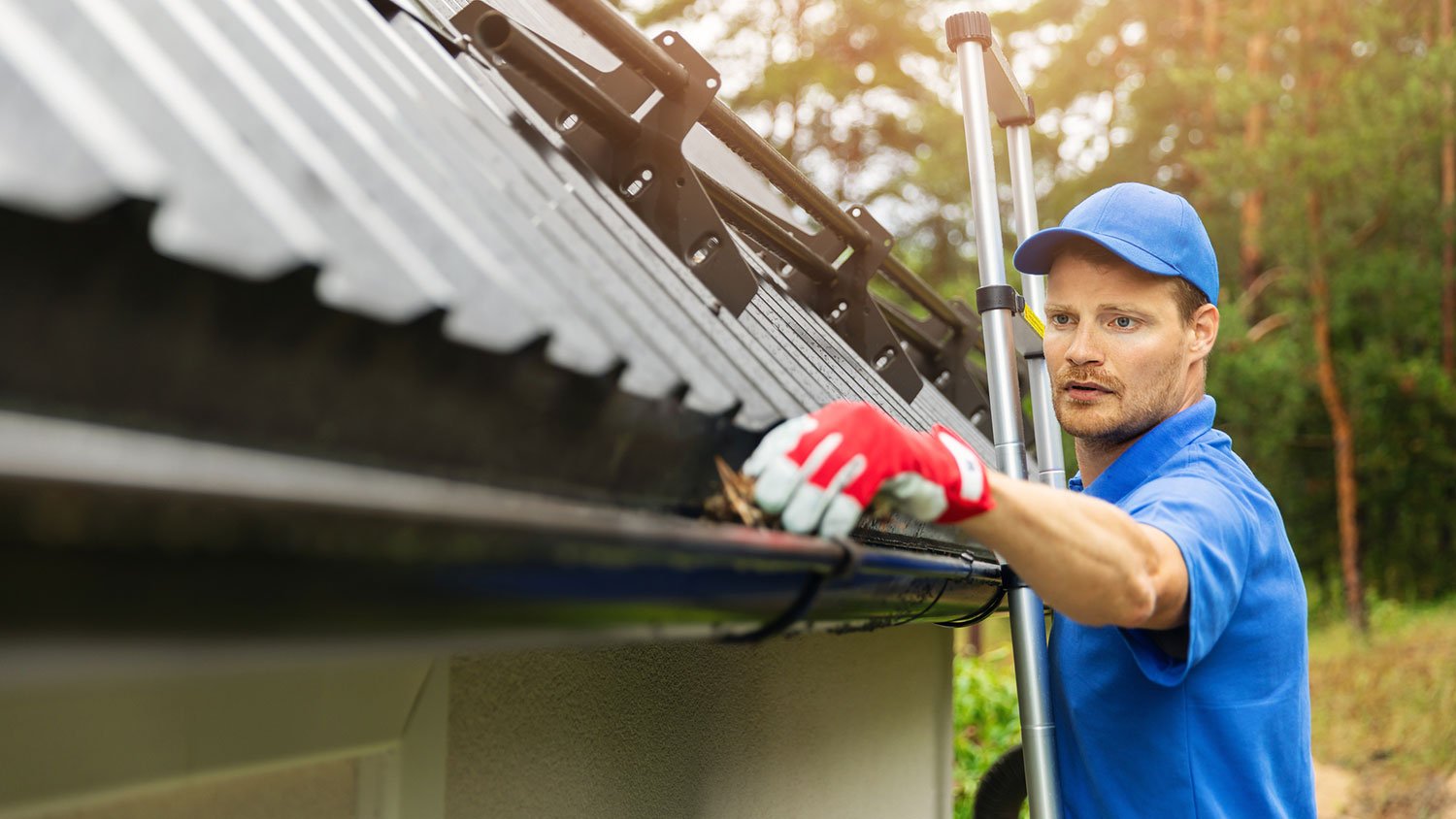
Covering dirty, clogged gutters with screens can be counterproductive. Give your gutters a thorough gutter cleaning to ensure you're placing your new guards over a pristine environment.
This is also a good time to check for gutter clogs using your hose to run water through your gutter. You should also check for any cracks or breaks in your gutter system. Confirm that you aren't seeing any of the warning signs that you need new gutters before investing time and money into new gutter guards.
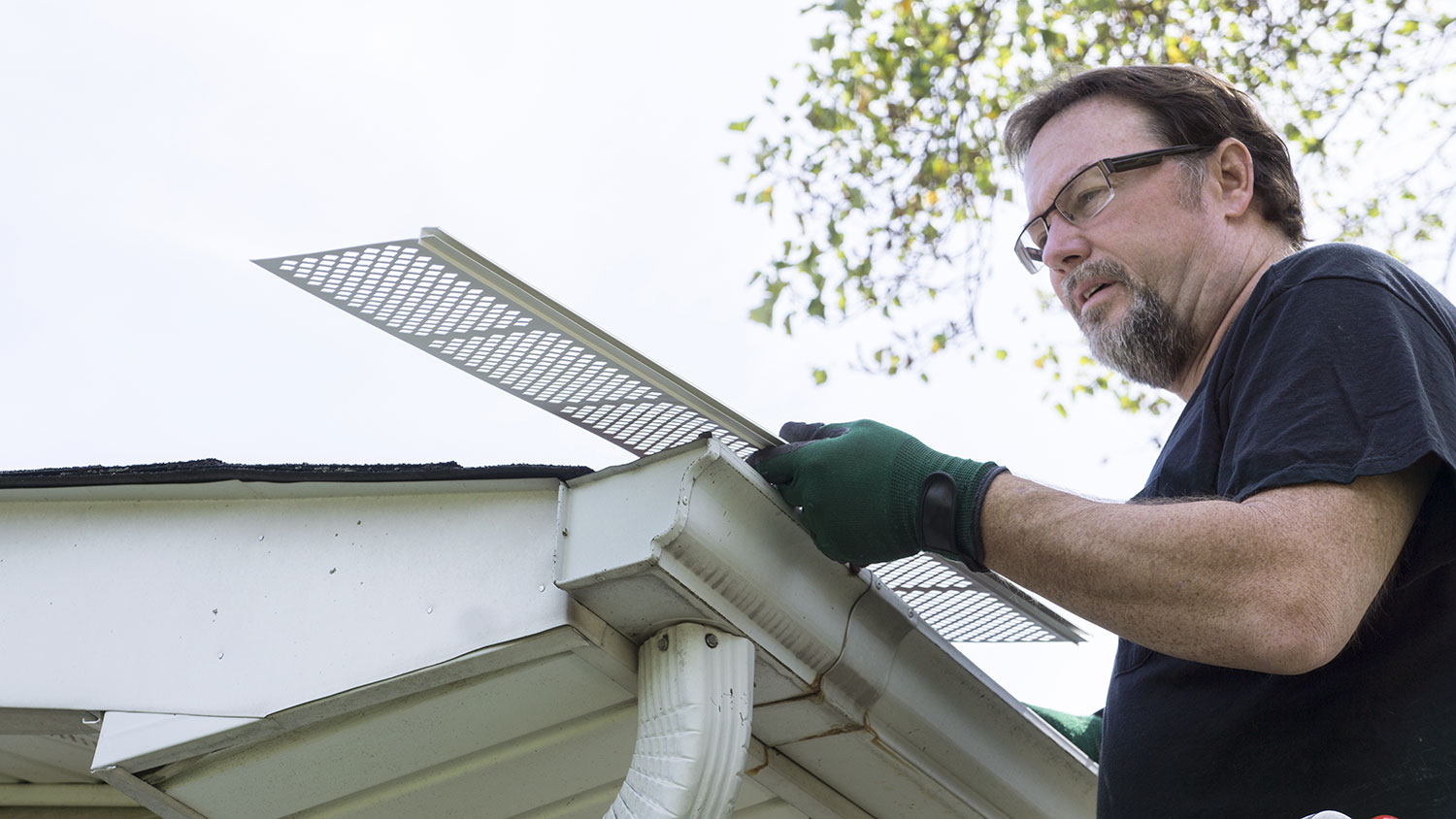
Before beginning, select a starting point. You should also follow instructions specific to your type of gutter guard; some don’t require tools at all, while others have special attachments, like support brackets. Read the manufacturer’s instructions and check that you have all the necessary pieces to complete the installation.
With brush or foam gutter guards, you’ll simply need to place them end-to-end inside your gutters and snap them in place; no tools are required. After they are placed, you can trim the guards to fit your gutters. These types of gutter guards will need to be replaced every two to three years.
Screens usually come in large rolls. You’ll need to cut the rolls to size, then slide one side of the screen under the first row of your roof’s shingles. The other side of the screen should attach to the gutter itself or to the gutter lip. Some models might require that you fasten the screens using special clips, tape, screws, or support brackets that are placed along the roofline. If you need to trim the screen, use a utility knife to do so. Screen gutter guards typically last five to 10 years.
Micro-Mesh gutter guards are sold in three-foot or four-foot sections, and are a type of gutter screen, so they are installed similarly. They usually are slid under your shingles and attached to the outer edge of the gutter. Attachment type (i.e., clips vs. screws) depends on the manufacturer, but most have detailed instructions and tips on their respective websites.
Reverse-curve gutter guards require professional installation, and sometimes require new gutters to be installed at the same time. These gutter guards use surface tension to pull water into your gutters, and are designed to extend beyond your gutters then curving back towards them—this allows water to flow down the slope and into the gutters. This unique style of gutter guards have an exceptionally long lifespan—sometimes as long as 40 years.
Homeowners schedule gutter cleaning and maintenance for several reasons. According to responses from 72,300 Angi customers, the leading reason, reported by 33% of homeowners, is regular maintenance. Close behind, 30% of homeowners request service because of clogged gutters. Since clogs can block proper water flow, addressing them early is especially important before installing gutter guards.
Homeowners who want to handle this project themselves should purchase DIY gutter guard kits. These simply slip over the top of the gutter, so you don't have to hire a pro. Keep in mind you'll need a ladder and some basic tools to complete the installation.
“Store-bought gutter guards typically do not last as long as professionally installed, higher quality guards,” says Jose Figueroa, Angi Expert Review Board member, crew supervisor, and sales representative at Artisan Quality Roofing in Apex, N.C. “However, they can still significantly reduce maintenance for as long as they last. If you are looking for a more long-term gutter guard as a permanent fixture for your gutter system, we recommend hiring a gutter expert to install aluminum or stainless steel gutter guards that screw into the gutter system.”
From average costs to expert advice, get all the answers you need to get your job done.

Heated gutters are a great way to minimize gutter damage and maintenance. Use this guide to estimate your heated gutter cost before getting started.

Wondering how much gutter installation costs? We’ll break down prices by material, gutter type, and other factors impacting overall gutter costs.

Here's everything you ever wanted to know about saving money by installing faux copper gutters instead of real copper gutters.
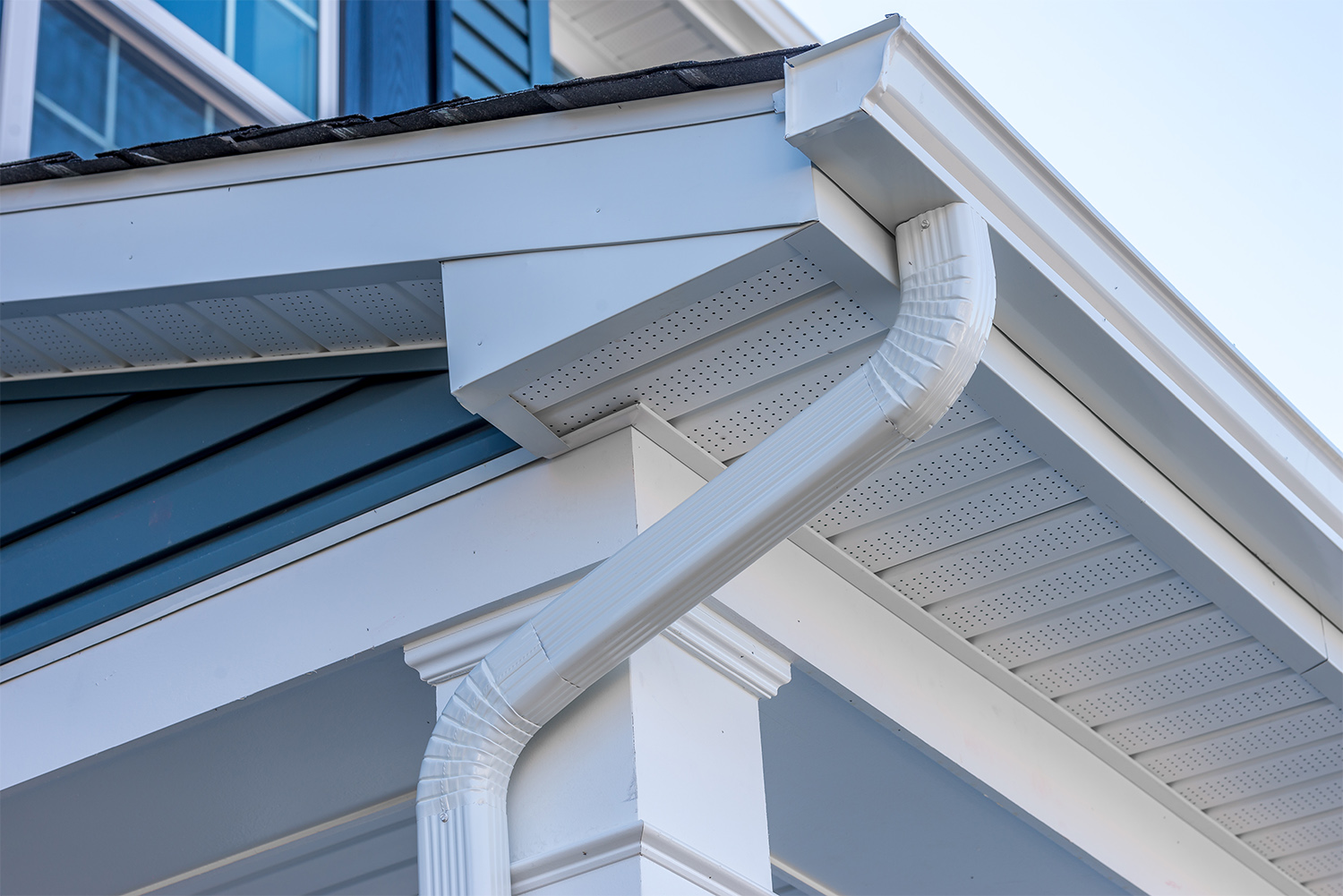
Wondering how much gutter installation costs? We’ll break down prices by material, gutter type, and other factors impacting overall gutter costs in Washington, DC.
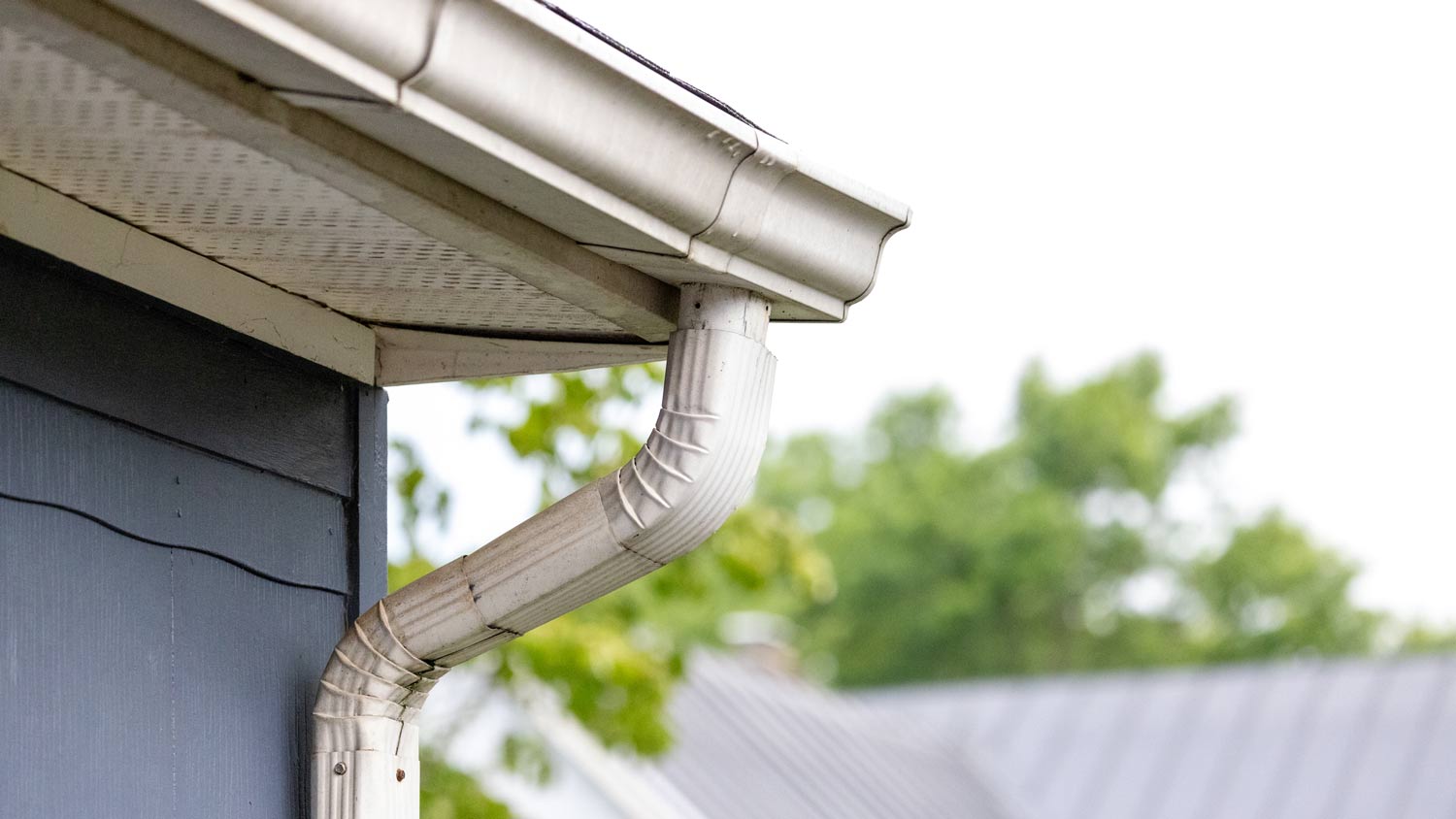
It's time to say goodbye to clogs in your gutter system. Learn how to clean a gutter downspout safely on your own in a few simple steps.

Seamless gutters are a durable and low-maintenance solution for handling water drainage. Use this guide to learn all about whether seamless gutters are right for your home.